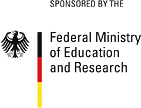Cluster B: Limits to Distribution
Notwithstanding recent reductions in inequality, Latin America continues to be one of the most unequal regions in the world. In the literature that targets the question of how to reduce inequalities, there is a widely shared consensus regarding the positive effects state action can have for making societies more equal. Hence, Latin American states are held to be the most likely, powerful and important actors for reducing inequalities and the resulting patterns of socio-economic (and political) exclusion in the region.
Such an approach, however, tends to underestimate two central aspects: The first is the question of politics, understood as struggles over the definition and implementation of state policies at a specific historical moment, in the making of inequalities in Latin America. The second represents the institutional legacies responsible for the reproduction of inequalities over time.
Against this background, Cluster B aims at bringing politics back into the research on social inequalities and to explore the limits to distribution and redistribution. It will focus on state practices that actively and intentionally produce, perpetuate, increase or reduce inequalities, ranging from the effects of selective targeting of welfare recipients, of the uneven territorial reach of public policy implementation, and of the use of law as a mechanism of exclusion/inclusion of specific groups from access to public goods and services.
Work within Cluster B will address two thematic foci that together provide an useful analytical entry point for assessing the relationship between state practices and social inequality:
First, state practices related to processes of criminalization and judicialization of socially vulnerable groups are investigated. Both processes constitute widely used mechanisms of state-driven inclusion and exclusion that produce or/and deepen inequalities. While, on the one hand, inequality is generated through the establishment and implementation of laws, on the other hand, it is through policing, law enforcement and punishment that the state causes, perpetuates and/or deepens existing social inequalities.
Second, the cluster looks at the relationship between economic growth driven by the export of natural resources and social inequalities. The slight reductions in income inequality observed recently in some Latin American countries as well as the construction of a “new middle class” have been caused mainly by externally-induced economic growth (above all, global demand for raw materials and agricultural products) and the related transformations in labor markets and social assistance programs (mainly Conditional Cash Transfers). This process is linked to the global valorization of nature with increasing social ecological inequalities, particularly visible in regional and local contexts.
Therefore, the limits of distribution of this developmental model – based on the combination of re-commodification of the economy and the social compensation through redistributive social policies – will be scrutinized critically considering what are its impacts at the subnational level. In this regard, the Focal Study 3 seeks to explore the relatively unexamined connections between globally-produced structures of inequality (for example, in global consumption of natural resources) and politics within and among various levels of the state.
Cluster B interacts closely with Cluster C as well as with Focal Study 2. The common goal is to examine jointly the role of the state at its different levels with regard to its (re)distributive capacities and limitations.
Coordination: Marianne Braig



